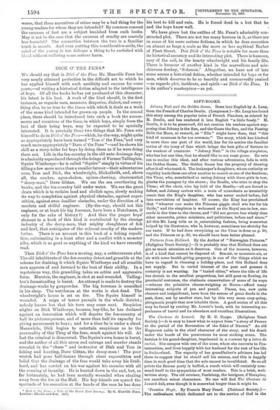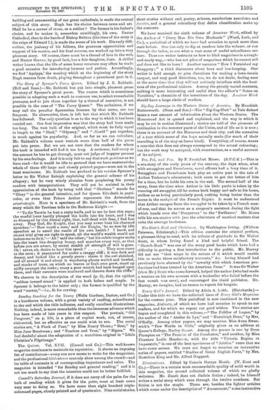building and ornamenting of oar great cathedrals, is made the
central subject of this story. Hugh has his choice between arms and art- Shall he be a carver of stone, or n soldier 1 The former is his father's choice, and he makes it, somewhat unwillingly, his own. Exeter Cathedral, then in the hands of Bishop Britton (the time of the story is the reign of Edward T.), is made the scene of his work. His early diffi- culties, the jealousy of his fellows, the generous appreciation and support of his master, and his final success, are worked up into a very pleasant story. Of course, there must be a thread of love in the web, and Master Gervaz, by good luck, has a fair daughter, Joan. A skilful writer knows that the life of some lower creature may often be made a good occasion for introducing humour and pathos. Accordingly, we find 'Agrippa,' the monkey which at the beginning of the story Hugh rescues from death, playing throughout a prominent part in it.
























































 Previous page
Previous page